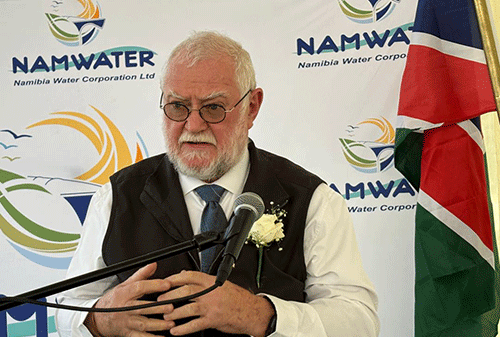Sawi Hausiku
RUNDU – The minister of agriculture, water and land reform Calle Schlettwein has warned against the over-exploitation or pollution of the Okavango River as it is already under stress.
He made this statement earlier this week during the official unveiling of eight countrywide agri-food system sites to the ministry at Kuwoko Kondja community garden in the Kavango West region.
The project is funded by the government of Japan, through the Japan Supplementary Budget, and is implemented by the agriculture ministry, in collaboration with the United Nations Development Programme (UNDP).
Referring to the Kuwoko Kondja garden located along the Okavango River, Schlettwein said the people are fortunate to have the perennial river flowing past them.
“No development is possible without a secure, reliable and affordable water source, although it is finite. The Okavango River is, as we speak, under stress because of drought and low levels of water in the river,” he said.
He added that the end-users of the river in Botswana are already struggling with water issues more than the Namibians are doing.
The minister urged the communities living along the river not to over-exploit or pollute the river, but treat it as the most important resource they have.
“Because without it, your community garden will be gone. The water is your lifeline and yourself who are the human capacity to develop this project,” he advised the beneficiaries.
He agreed that the people in the area have lived along the river and used the resource for many centuries, and he was hopeful they know the value of the resource.
Schlettwein said the agri-food system project started in 2020 with the assistance of Japan which availed N$20 million.
The project aims to strengthen Namibia’s food systems to recover from emergencies and disease-related shocks through the Build Back Better (BBB) Programme to support additional constituencies with low adaptive capacities in the country.
The project targets to support at least 200 households, 60% of which are female-headed, in peri-urban communities, increasing their adaptive capacities and resilience to climate shocks through income-generating activities from the sale of agro-produce and small stock.
Schlettwein urged the beneficiaries of the community gardens to start adopting smart agricultural technologies in order to improve production.
-Nampa


